Your TV is living in the dark ages.
At least, that's according to Neil Hunt, the chief product officer at Netflix.
Hunt, who delivered a keynote speech at the 2014 Internet Week in New York, predicts that personalization and on-demand viewing and streaming are really the way of the future when it comes to entertainment. They are also part of his plan to have Netflix defeat its rivals in entertainment. Netflix, which was founded in 1997, has 48 million subscribers worldwide and in the first quarter of 2014 streamed 6.5bn hours of entertainment, bringing in revenue of over $1bn. Though subscriber growth has slowed in recent years, the company's plan to hike prices has won cheers from Wall Street.
But the competition is getting tougher – Amazon is in the ring now – and Netflix needs a plan. Hunt told the audience in New York, “Our vision is you won’t see a grid and you won’t see a sea of titles. Instead you’ll see one or two perfect suggestions that perfectly capture what you want to watch right now depending on your mood and who is with you, who is sitting with you at the TV right now. I think this version is possible.”
The traditional TV, or "linear TV" as Hunt refers to it, is limited by the 24-hour grid based on which it plans its programming, which creates a tyranny from shows seen as popular.
The limitations of such a model have often led to demise of shows with niche appeal or cult-like following. Such shows, while failing to attract enough viewers to secure a second or third season on network television, have found many fans when streamed online – think Firefly, which was the subject of Neflix’s April’s Fool prank this year, or Arrested Development, which was revived by Netflix last year for a fourth season.
Netflix sees itself as a way to restore television justice, Hunt suggests.
“Common criticism I hear is that we carry a lot of old shows, some call them junk. But I have a different perspective. There are no bad shows, but there are many shows with small and devoted audiences,” explained Hunt. “And internet TV, not subject to the tyranny of the grid, can afford to carry those small shows.”
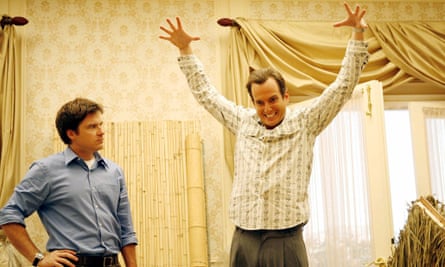
While speaking at the Code Conference earlier this week, Reed Hastings, Netflix co-founder and CEO, said that Netflix will not use data to influence its original content. Hastings noted that David Fincher, who helped direct the first season of House of Cards, did not want to know that number of users turned off the show after Frank Underwood's character strangles a dog. Instead of using data to determine how its series' characters should behave or whether they should live or die, Netflix uses its data to determine which users it should promote its content to.
The flexibility of internet TV doesn’t just open the doors to more diverse programming, but also to the way that the stories are told in terms of length and languages. The first of Netflix' original series, Lilyhammer, was released in Norway in 2012 and much of it is in Norwegian.
Expect a more global feel. Recently, Netflix announced that it was expanding into six more European countries.
Yet even as the company embarks on the mission to change the way people watch TV around the world, it's facing a war back in the US. At home, Netflix is currently battling the internet service providers over net neutrality - the access to their cable bandwidth, necessary in order to stream its contents to the subscribers.
“We would rather beat our internet TV competitors by providing superior service than by being the biggest one who can afford to pay the bills that internet service providers would like to charge,” Hunt said on the topic of net neutrality.
We caught up with Hunt to talk about his management experience, Netflix’s stance on the issue of net neutrality, the future of internet TV, and why Netflix subscribers shouldn't feel guilty about binge-watching their favorite shows.
What piece of advice would you give someone based on your experience?
Hire fully grown adults and treat them as adults.
Has your role at Netflix changed over the years as the company has grown?
Well, it's hard to go from a startup with 20, 30 people in it to an organization that has over a thousand people in it without learning a lot of stuff along the way. Certainly, the Netflix culture that has been widely discussed and written about has been a product of trying to understand what it would take to grow without losing the nimbleness and effectiveness that characterized the early years of Netflix.
And so, the idea behind "performance culture" [and] "freedom and responsibility" – both of those concepts came out of a lot of debate and the early 2000s as we were scaling and growing.
This article includes content hosted on slideshare.net. We ask for your permission before anything is loaded, as the provider may be using cookies and other technologies. To view this content, click 'Allow and continue'.
You're the head of product at Netflix. Clearly, the product has changed quite a bit since 1997, when it started as a DVD distribution company. Where is the product going next?
The shift from DVD to streaming began in about 2007 and accelerated in 2011 and at this point is essentially accomplished as far as I can see. It feels fairly straightforward and simple. It's just a substitution of a different delivery vehicle, but actually there's more to it than that.
The proposition that we offered to the customers of our DVD service was a proposition to be able to get any DVD – essentially any DVD that was released – but with limits of the postal service delays and so on and so forth. The typical subscriber would consume two or three DVDs a month.
That's a very different proposition from today in the streaming world, where we don't seek to carry everything. We seek to carry the compelling library of content that's available immediately as much as people want to watch. A typical subscriber today is watching 30 to 40 hours a month of Netflix content. That's a huge shift upwards and, of course, the DVD and the streaming plans are both essentially the same price – $8 or $9.
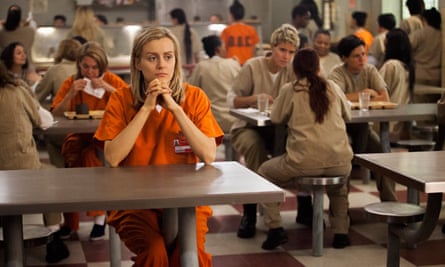
That fact that there's so much more available on the streaming plan is really quite a different proposition. That leads to a lot of technology changes along the way.
The one that I like to point to is the queue, which DVD users would remember as being the queue of the DVDs they want shipped to them in the order that they wanted to receive them. That worked well for the DVD business, but we were not sufficiently thoughtful as we brought that to the streaming world. And the idea of an ordered list of titles that you would want to watch doesn't really make sense when you can pick anything right now and watch it.
It makes much more sense to think about it as an un-ordered collection of titles you want to see, where Netflix can apply the personalization, the recommendations algorythms that we spent a lot of time and effort [developing] to pick out from the un-ordered list the set of titles that would be interesting. That actually makes the queue become My List, which becomes a dramatically more powerful vehicle. A simple change, but lot more power comes out of it.
It seems that Netflix appeals to a variety of demographics – parents with kids that need to be entertained, teens, couples, truckers who use it to pass the time while stuck at a truck stop. Who would you say are your users?
We have consciously reached out to try to provide a service for people who love it, anyone of any different description of variety. I like to think that where as all television might have dealt with channels and there would be a handful of channels that a teen would watch and then channels that your father would watch.
At Netflix, we think to provide 48m different channels for 48 million different subscribers. And we use all of our personalization technology to look to understand the taste and interests of each of those different customers and then to match that up against everything we know about our content. So "recommendations and suggestions" sounds too straight forward, but essentially the selection of content that your son would see on his home screen is very different from the selection from the content that your father would see according to how different their tastes are.
It's not like we are trying to force a particular choice on each of those consumers, we are trying to make sure they have acceptable choices at their fingertips, the choices that appeal to them. That's really what's it all about. It really is about trying to have a separate, distinct channel for each customer.
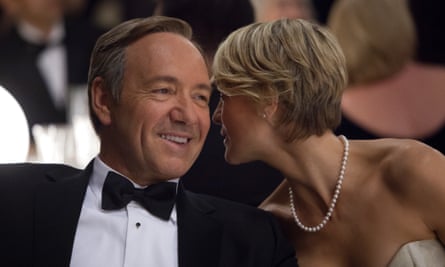
Speaking of recommendations, I'm a huge fan of House of Cards. How do these original shows like House of Cards and Orange is the New Black play into your bigger goal?
I think we are going to end up doing a lot more originals over time.
The world of internet TV kind of means that not all shows have to be 13 episodes times 42 minutes. That's a new freedom – the idea that a story can have long segments and short segments and that you don't have to end each 42-minute segment with a tidbit of the next one because you know that people are going to be watching several in the row. The freedom is really that we get to develop by working directly with the producer and the team to cross new kinds of storytelling. The best way to do that is to do it ourselves, to do our own original work and really have the agenda for how that moves forward.
When you look at House of Cards and Orange is the New Black and several others of the originals, you will see that the storytelling is deeper and richer, but I think we have a ways to go. We haven't yet cracked the idea that the episodes all need to be 42 minutes long.
So the idea is maybe you have a 15-minute episode and maybe you have a 19-minute episode with a break in the middle. And that's fine. Chapters in a book are a different length. And so I think as we do more and more work in the space, and as we have more and more rights to the content we will need to syndicate it out for getting exposure on more conventional linear television, we will have more and more freedom to change the format going forward.
Netflix has taken TV marathons and binge watching to a whole new level. I myself am guilty of it quite often. Do you find it interesting or amusing how Netflix has changed the way that people watch a show?
Binge watching … that term carries some connotations of guilt, which you echo.
You know, I don't think anyone would say that reading two chapters of a book in a row is binge reading. It's just a natural way to consume the story. If you get into it, you want to get on and see how it develops and unfolds.
It also gives us interesting opportunity to do a marketing campaign around watching responsibly. I think it's just a great natural way for people to engage with a compelling story.
Let's talk about developing product with input from the consumer. What's the role of the subscribers in building out Netflix? How do you usually interact with them?
Well, we are a very data-driven culture. We love to use A/B testing. If we have an idea we like to build most of it, then put it in front of a lot of people, maybe half a million people.
As a person uses the product, see if it behaves, we see if it works better, see if customers watch longer or retain better with the new version of the product that we have built. That's worked pretty well.
And of course, the ideas that we have put into tests don't come out of thin air. They often come out of customers' suggestions. They come out of focus groups and quantitative sessions where we watch customers interact with our products and we talk with them.
We do a lot of that kind of work, too. We try to be very responsive to what people actually want – what will generate more viewing hours, more retention, more engagement with the server. Whatever we can do to advance that movement forward, that's what we will seek to do.
We have been hearing a lot about net neutrality. A lot of it, however, seems to be removed from the actual consumer. Has there been any communication between your subscribers and Netflix? Have they expressed any concern on the issue?
I don't think customers care or necessarily should care too much about the details of net neutrality, but they should care about the outcome.
The issue at stake here is – the number you hear bandied around here a lot is that Netflix represents a third of the internet. That's sort of missing the point. The bottom line is the average Netflix stream is two megabits-a-second, where what consumers are paying for is 10 or 20 megabits-a-second. And so it's not really a third of the internet traffic, it's actually about 10% of what you've already paid for. Essentially, if the internet service provider wants to charge the providers like Netflix for the right to provide the traffic or for the right to give the internet service provider the traffic that their customers have requested and paid for, feels like double dipping. That's our statement so far.
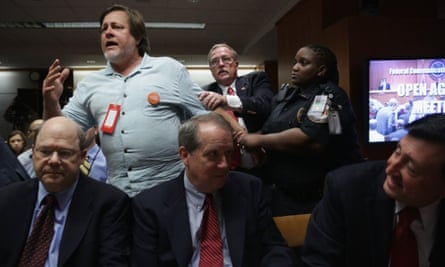
If it were a competitive market, if there were several different internet service providers serving you, the customer, and some could offer net neutrality and some not, then the market would discipline the internet service providers that under-provide it, or overcharge, and we would have fair price set for what it takes to exchange the bits.
But the reality in this country is that we don't really have competition for which cable provider you really get your broadband from. That leads to a situation where that broadband provider can pretty much charge whatever they want for the internet connection with no constraint. We don't think that's a realistic model.
We think the right outcome here is for a place where internet service provider gets to take the bits to its edge network at no cost and where Netflix pays to bring the bits all the way up. So typically the bits that flow to you may only flow three or five miles from our service to your house.
We think that's the service that you have paid for with your $80 or $90 a month paid to the internet service provider and that we should get to give those bits to the internet service provider at no charge and they should deliver them with the equal priority across all the different services. So no fast lane, but equally no penalization. That seems like a fair outcome to us.
So that's what we are arguing for as a strong net neutrality condition. It's interesting to see how this shapes out, but certainly I am not a great fan of what I understand of the current FTC proposed rulemaking in terms and conditions. I think we have some work to do.
The key observation is that in UK there really are competitive internet providers. It's really interesting to us that when we offered to bring Netflix bits directly to wherever the internet provider wants to take them, they are only too eager to embrace and bring them into the network for no charge. So the only place in the world where there is an anti-connect charge discussion is where the broadband provider is not in a particularly competitive market.
Where do you see Netflix going in the next few years?
There's a lot more people in the world who are enthusiastic about internet TV and we have ambitions to take our original shows and other signature great shows we licensed across the world, country by country, region by region. I think that's a very exciting growth opportunity in front of us and we don't need to invent new businesses, we just need to deliver the business that we are working on as widely as possible.
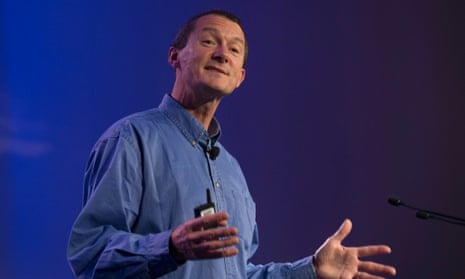



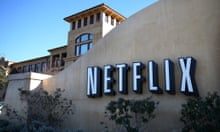
Comments (…)
Sign in or create your Guardian account to join the discussion